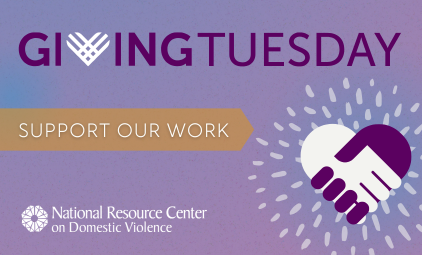Increasingly, domestic violence (DV) victim advocacy programs are being asked by funders and policy makers to describe not just whether and how their services are “evidence-based,” but what theory of change guides their work. In order to help DV programs respond to both of these demands, the National Resource Center on Domestic Violence (NRCDV) has created an online resource center that houses a great deal of free and accessible resources.
VAWnet News Blog
The Board of Directors for the National Resource Center on Domestic Violence (NRCDV) has announced the appointment of Heidi Notario, M.A. as an officer to the organization.
One of the biggest predictors of a child’s ability to be resilient in the face of trauma is interacting with a caring adult. Through everyday gestures, any adult in a child’s life can vastly increase that child’s opportunity for success. Learn how your everyday gestures can help a child in your life.
In order to do culturally-specific research and evaluation well, researchers must build relationships with survivors and advocates. This is why community-based participatory research – as an approach that requires ongoing collaboration and developing trust – is so valuable. And why it leads to interventions and responses that are often more relevant for survivors and communities.
This type of trauma is something no child should ever experience. Whether you paint your left ring fingernail purple, or donate to support services for victims, your action is needed. Take the #PutTheNailinIt vow and join me today.
This October, the Domestic Violence Awareness Project of the National Resource Center on Domestic Violence built upon conversations from 2015 around Awareness + Action = Social Change by offering key awareness activities and action steps for propelling us forward together.



















